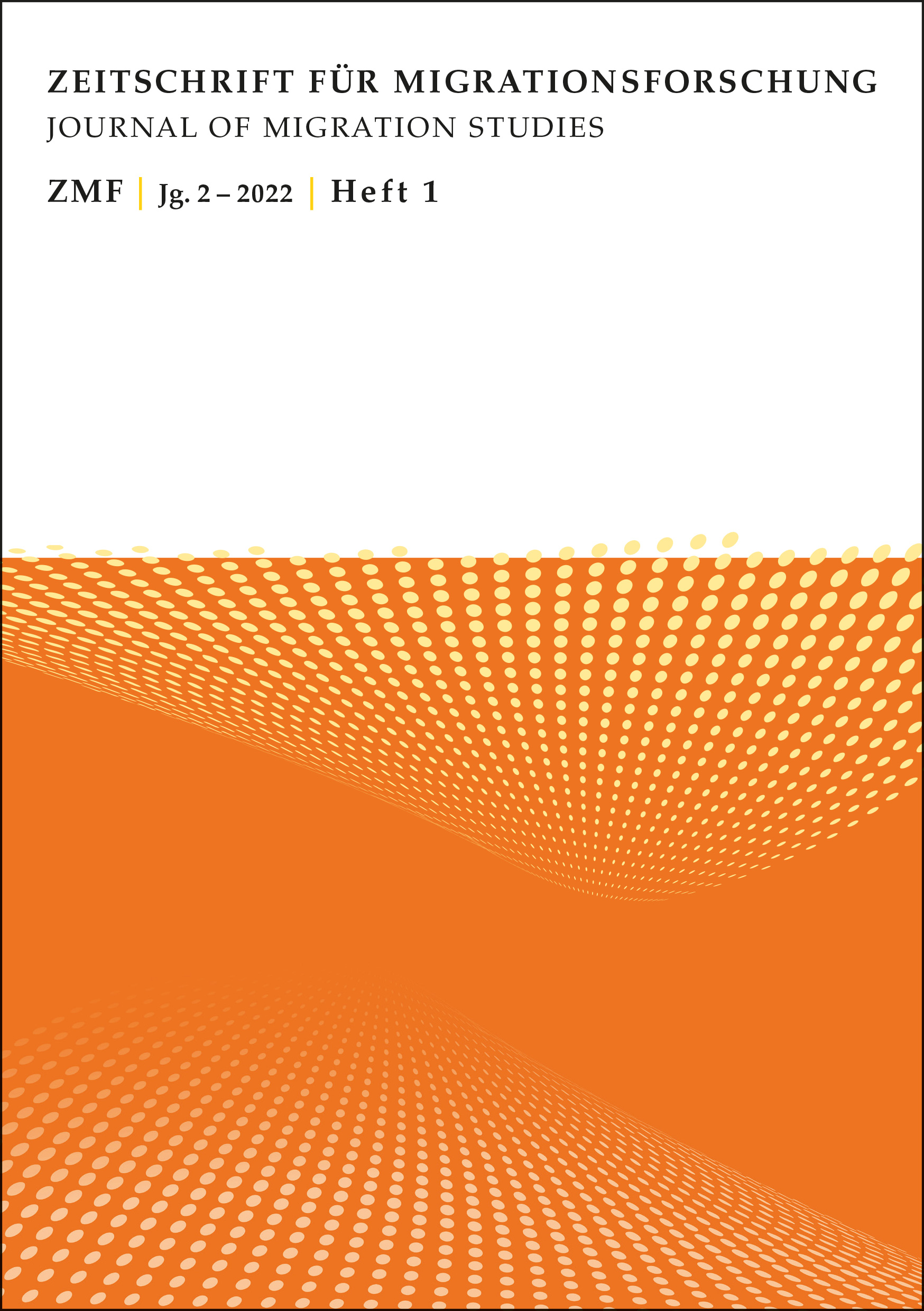Hauptsächlicher Artikelinhalt

Abstract
In den 2010er Jahren standen die wissenschaftlichen, politischen und öffentlichen Diskurse um die EU-Binnenmigration weitgehend im Zeichen von zwei Prozessen: den Auswirkungen der globalen Wirtschafts- und Finanzkrise seit 2008 in den südeuropäischen Mitgliedstaaten und der Freizügigkeit für Bürger*innen Bulgariens und Rumäniens. Das Interesse dieses Aufsatzes gilt der Verflechtung von wissenschaftlichen, politischen und öffentlichen Diskursen über die EU-Binnenmigration aus Süd- und Südosteuropa und insbesondere jenen, in denen die Begriffe ›neue Migration‹, ›Talentabwanderung‹, ›Prekarität mobiler Arbeitnehmer*innen‹ sowie ›Armutsmigration‹ präsent waren. Der Aufsatz setzt sich mit folgenden Fragen auseinander: Welche sozialen und politischen Deutungs- und Handlungszusammenhänge fließen in die diskursiven Auseinandersetzungen um diese Begriffe ein? Welche Deutungsfiguren über Migrant*innen bzw. mobile Unionsbürger*innen generieren sie?
Discourses on EU Internal Migration from South and Southeast Europe
In the 2010s the scientific, political and public debates over the EU internal migration have been strongly influenced by two developments: the impact of the financial crisis on the South European countries and the introduction of freedom of movement for the citizens of Bulgaria and Romania. In the scientific, political and public debates, these developments have found expression in the notions: ›new migration‹, ›brain drain‹, ›precarity of mobile labor forces‹ and ›poverty-driven migration‹. This essay considers the meaning of these four notions as having been shaped in discursive discussions on EU internal migration, and more specifically in the interwoven scientific, political and public discourses on the migration from South and Southeast Europe. The analysis explores how social and political correlations feed into these discourses and give rise to the four different interpretative images of mobile EU citizens.
